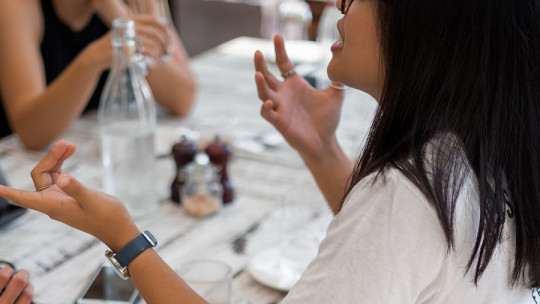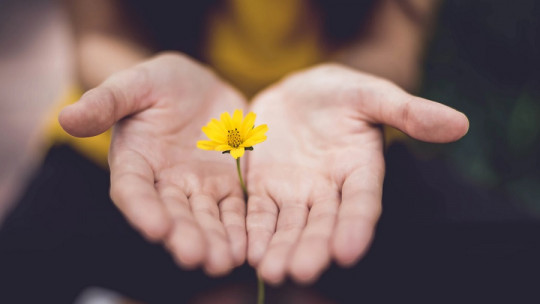
Social life, the one we share with others, brings with it innumerable advantages, but it is not without problems. However, when these small frictions with others appear, not everyone shows the same propensity to apologize.
In fact, you don’t even need to classify people according to the details of their personality traits to know whether they are more or less likely to say “sorry”: just go to the most basic division of all: men and women. The former are significantly more reluctant to apologize But why?
Why many women apologize for everything
It has been proven that women tend to apologize more than men, but the differences between the sexes on this issue do not end there. Women also tend to report having committed more offenses or non-compliance. Is this because the female sex is more likely to cross the line of what is morally correct? Not really.
The difference is in what each person considers it is to cross that line. In other words, Women are more sensitive to their own behavior that may be considered a reason to apologize, while this threshold is higher in men, causing a greater number of these faults to go unnoticed as such. Having committed the same attack, the woman will be more likely to apologize while the man, in many cases, will not even consider the option of doing so because he does not believe that he has done something wrong.
It is easy to conclude that this is because men are insensitive to the suffering they sometimes cause, perhaps as a result of their somewhat more aggressive nature. However, there is no reason to think that this is the explanation for this phenomenon. The cause may actually be that many women apologize when they have no real reason to do so.
A problem linked to gender?
Many gender studies agree that traditionally, and even today in most countries, The role of women has been explicitly linked to taking care of the home and to care for the domestic needs of the rest of the family. Thus, beyond the husband’s work obligations, it is assumed that the wife takes care of everything else.
In this sense, any problem that occurs with any member of the family and that has to do with domestic tasks will always be recognized as a lack of responsibility on the part of the woman.
If one day the husband is about to leave for work and realizes that he does not have a snack prepared to take to the office, the wife will instantly recognize that he has made a mistake… even when he is not really making one. Normally these types of details are not the result of a negotiation, but rather the result of automatic gender role assignment If the custom is for the woman to prepare something to eat for her husband, the day this is not done, a reason appears to ask for forgiveness.
What is significant about this, however, is that this custom becomes so internalized by women that they can apply it to all areas of their lives that are beyond the domestic. That is why it is possible to find very young women, even single and living in an apartment to themselves, who They are more likely to apologize even in front of people they have seen for the first time. The reason is that they have inherited the culture of “when in doubt, apologize.”
Regrets that parasitize
The problem with many women asking for forgiveness excessively goes beyond the fact that they reinforce the idea that they have more reasons to apologize for by doing the same thing as men. In addition to this, they tend to take the blame for facts for which they have no reason to assume responsibility and seeing life through this prism is a very bitter thing.
On the one hand, very few people around them have reasons to point out this error, since receiving undeserved apologies puts them in a position of power; It is easier not to contradict the version of the person who asks for forgiveness. On the other hand, getting used to asking for forgiveness for everything makes us, little by little, convince ourselves that we don’t deserve anything.
Being aware many times a week that we have reasons to apologize, whether true or not, undermines our own self-esteem and perpetuates this vicious cycle. With low self-esteem, it is easier to assume that in an ambiguous situation, if someone should ask for forgiveness, it is oneself or, in this case, oneself.
Therefore, to break this self-destructive dynamic of asking for permission to even breathe, we must first question gender roles and then cultivate self-esteem. The first requires a lot of work, and seeking the solidarity of people in a similar situation. For the second, a good start is simply to look back and reflect on those situations in which we say “sorry” in vain.








